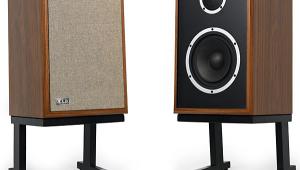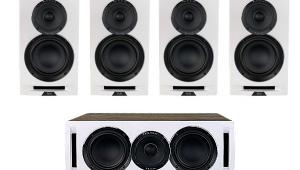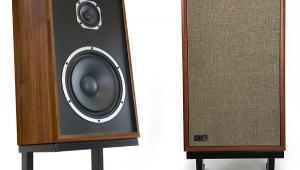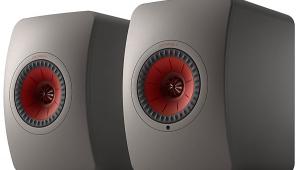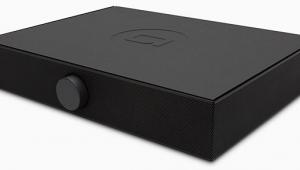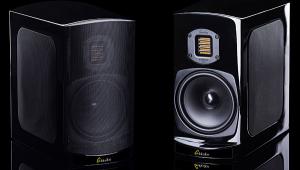Infinity Reference R162 Speaker System Page 2
The Amazing Spider-Man 2 is the kind of movie that brings dynamic maximum up to rock-concert levels—and I say this as someone who plugs his ears with silicone gel at rock concerts. It’s mixed with loads of aggressive treble. The Infinities did nothing to disguise this, the way a more “forgiving” system might have. This was yet another case where, if listening as an everyday citizen instead of a reviewer, I would have invoked a low-volume listening mode (like THX Loudness Plus, built into the Pioneer). But lowering the volume turned out to be an almost equally good solution, thanks to the RC263’s exemplary vocal clarity. I could catch dialogue even at levels far lower than what the mixer intended.
Tomorrow Always Knows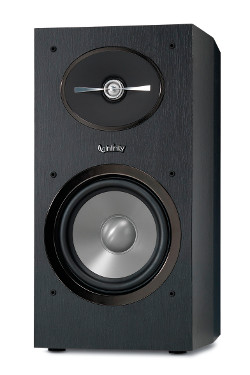 Back in the days when each new Beatles album seemed like a revelation, Revolver stepped up the pace even more radically. In a similar spirit, the recent vinyl reissue of the album in mono (available separately as well as in the box set The Beatles in Mono) enables those of us who grew up on the badly executed stereo mix to hear this revolvo-lutionary record in a new way. The Infinities were in their warm-is-warm mode, burnishing pop’s most distinctive voices into ideal versions of the rich instruments they always have been. But this was no one-sound-fits-all approach. The speaker system adapted to every track’s individuality. So “Taxman” stung with its mordant electric guitars, acting like a strong cup of coffee, while the mellow acoustic guitars of “I’m Only Sleeping” evoked the feeling of an extra blanket on one of those cold winter mornings when you just don’t want to get up.
Back in the days when each new Beatles album seemed like a revelation, Revolver stepped up the pace even more radically. In a similar spirit, the recent vinyl reissue of the album in mono (available separately as well as in the box set The Beatles in Mono) enables those of us who grew up on the badly executed stereo mix to hear this revolvo-lutionary record in a new way. The Infinities were in their warm-is-warm mode, burnishing pop’s most distinctive voices into ideal versions of the rich instruments they always have been. But this was no one-sound-fits-all approach. The speaker system adapted to every track’s individuality. So “Taxman” stung with its mordant electric guitars, acting like a strong cup of coffee, while the mellow acoustic guitars of “I’m Only Sleeping” evoked the feeling of an extra blanket on one of those cold winter mornings when you just don’t want to get up.
In lieu of width, the mono mixes offered greater depth. On every track, those familiar voices just locked in, existing in their own space, separate from the instruments—yes, in just one channel, though of course I was listening in double mono through two speakers plus the sub. The monitors brought out the acerbic string quartet in “Eleanor Rigby” as well as the sassy brass in “Got to Get You into My Life,” but in a balanced way, like the balance of lemon juice and sugar in shandy. That didn’t prepare me for the high psychedelia of “Tomorrow Never Knows,” with its intoxicating cymbal-smash undulations—a mind-expanding marriage of content, retro analog technology, and speakers that held nothing back.
The Infinities could be fussy. They preferred the vinyl version of Wanda Landowska’s harpsichord performance of The Well-Tempered Clavier, Vol. II, over the CD release on Bach: The Landowska Recordings—possibly due, as always, to differences in mastering jobs and source components as well as formats. But that fussiness could be worth it when the R162 produced fresh insights into Haydn’s Baryton Trios, Vol. 1, as performed on that peculiar stringed instrument by John Hsu along with violist David Miller and cellist Fortunato Arico (ASV CD). The viol-like baryton looks like a lute mated with a cello, with some strings that are bowed and others that sympathetically vibrate. This Musical Heritage Society recording never made sense to me—nope, not even on my reference system—until I heard it on the Infinities. Finally, the baryton sounded not like a strangled cello but like, well, a baryton.
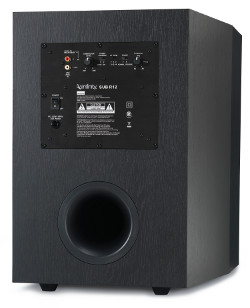 Henry Mancini’s Music from Peter Gunn arrived in the Original Album Classics CD wallet box. Words nearly fail me—it was that good. Mancini’s brilliant combination of trombone-rich horn charts and electric guitar bridged the generation gap, especially in the Emmy- and Grammy-winning title tune. The Infinities delivered the crowd-pleasing themes with plush textures and ever more abundant tone colors. I loved this music when I was a kid, and I’ve gotten more out of it as my audio equipment has improved over the decades, but I’ve never heard it with such generous depth and pinpoint imaging. I won’t be able to pull this disc out of its slipcase ever again without remembering what the R162 did for it.
Henry Mancini’s Music from Peter Gunn arrived in the Original Album Classics CD wallet box. Words nearly fail me—it was that good. Mancini’s brilliant combination of trombone-rich horn charts and electric guitar bridged the generation gap, especially in the Emmy- and Grammy-winning title tune. The Infinities delivered the crowd-pleasing themes with plush textures and ever more abundant tone colors. I loved this music when I was a kid, and I’ve gotten more out of it as my audio equipment has improved over the decades, but I’ve never heard it with such generous depth and pinpoint imaging. I won’t be able to pull this disc out of its slipcase ever again without remembering what the R162 did for it.
Infinity doesn’t turn over their speaker lines as often as they used to, so it’s been a while since I’ve reviewed one, but I’ve never heard any affordably priced product from the brand sound this good. These speakers taught me a lot about music I thought I knew like the back of my hand. If I maintained a speaker museum, the R162 would make the cut, and the sub is nearly as good. I imagine this system pleasing every listener except for the ones who prefer a less enthusiastic top end. On the other hand, many listeners may love these things as much as I did—especially if they’re in the mood for top-end revelations.
Audio editor Mark Fleischmann is also the author of the annually updated book Practical Home Theater (quietriverpress.com).


